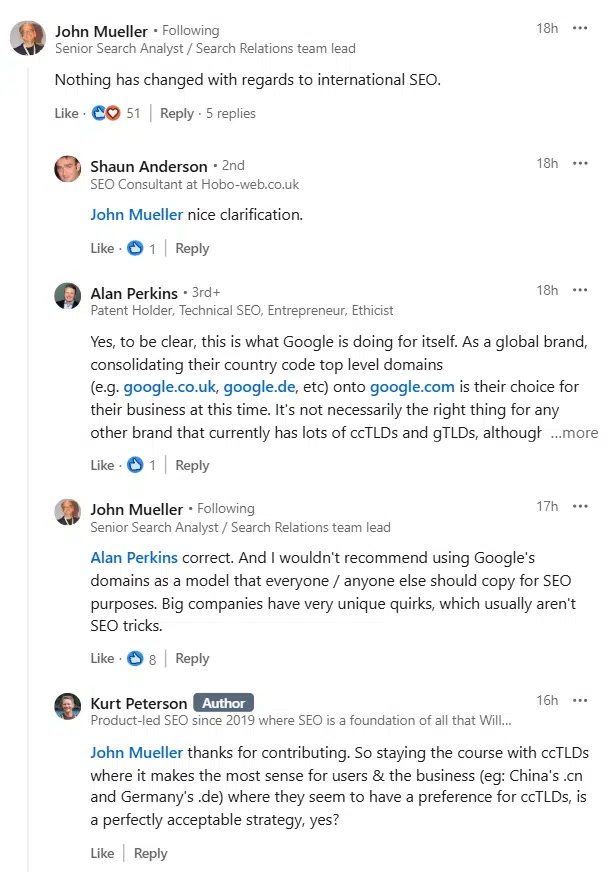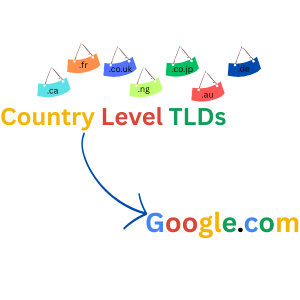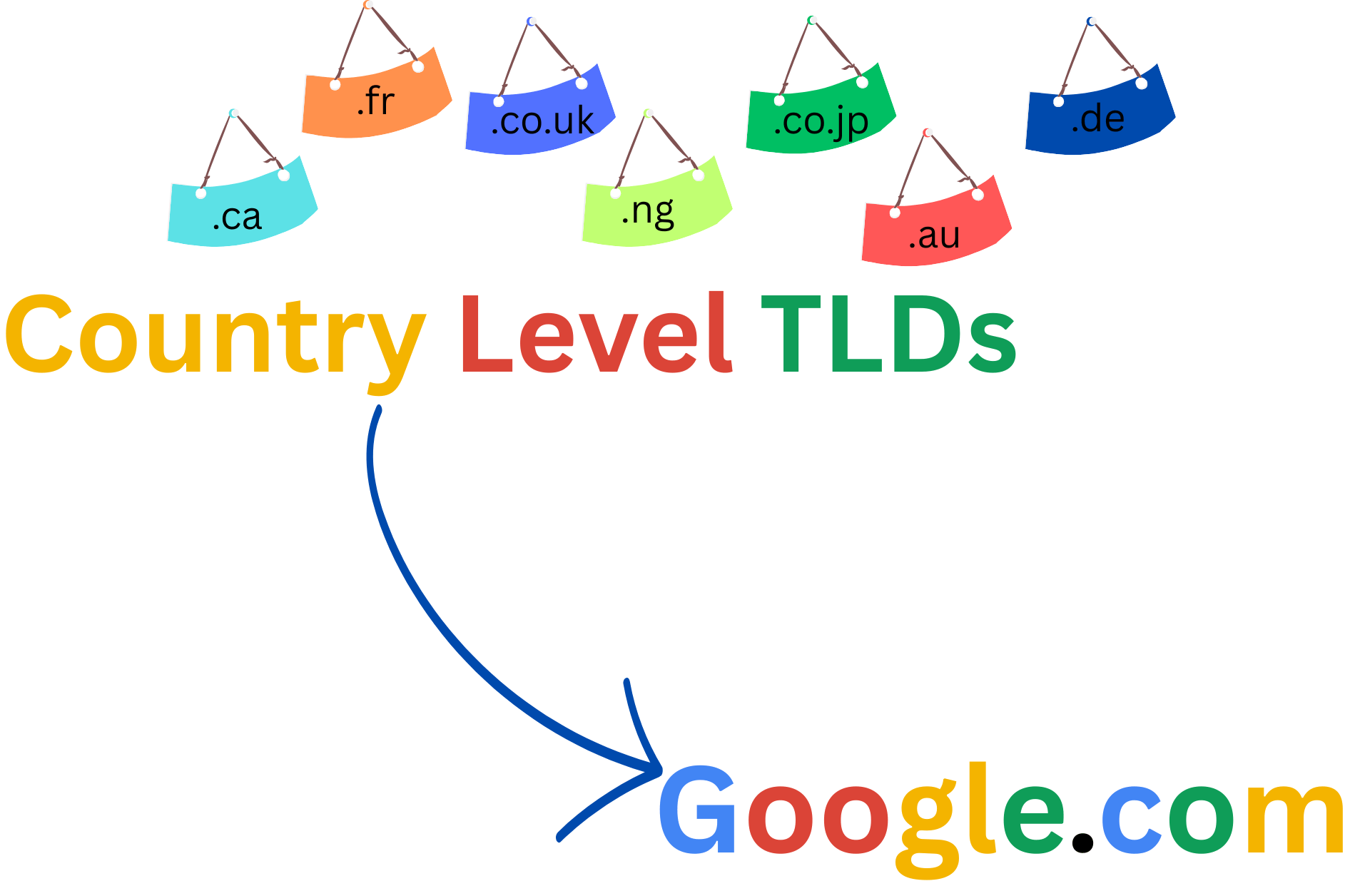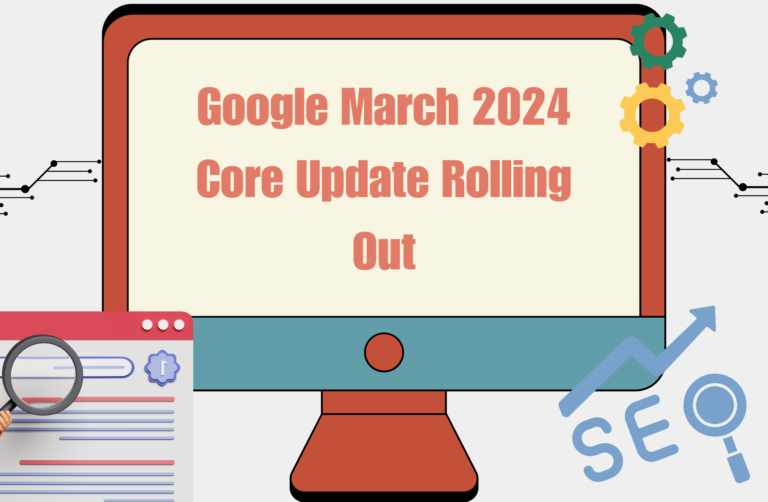Google has announced it will no longer use country-specific domains (ccTLDs) like google.ca, google.co.uk, or google.in.
Instead, all searches will now be redirected to Google.com.
Table of Contents
What’s Changing: No More ccTLD Targeting
So previously, accessing a country-specific Google domain (e.g., google.fr) would give you localized results for that country, even if you were physically elsewhere.
Google said,
Over the years, our ability to provide a local experience has improved.
In 2017, we began providing the same experience with local results for everyone using Search, whether they were using google.com or their country’s ccTLD.
Now this in simple words means, in 2017, Google has started delivering local search results based on your location, not the domain you visited.
Whether you typed in google.br or google.ca, you got search results based on where you were. That system worked pretty well, and now Google is confident enough to eliminate the old country domains fully.
Implementation Timeline
Google plans to gradually introduce this change over the coming months, allowing users time to adapt to the new system.
Although the URL in your browser will be different, Google assures that search functionality will remain unchanged.
Also, Google emphasized, it won’t affect the way Search works, nor will it change how we handle obligations under national laws.
What About International SEO and Hreflang Tags?
Hreflang tags help Google determine the appropriate language or country-specific version of a webpage to show users, playing a crucial role in international SEO.
So, even if Google is adjusting how it manages its own domains, that doesn’t mean hreflang tags are going away—at least not for now.
John Mueller has clearly stated: “Nothing has changed with regards to international SEO.”

There’s been some discussion in the industry.
In Episode 78 of the Search Off the Record podcast, Google’s Gary Illyes mentioned that he hopes search in the future will depend more on automatic location detection and less on manual tools like hreflang.
While this isn’t an official policy change, it gives us a glimpse of the direction Google might be moving in.
What Change You Will See In Your Analytics?
What happened before if someone visited your site from google.br or google.ca you could traffic it in your referral traffic.
With this change, all traffic from Google will now show up as coming from google.com, even if the user is in another country.
That means you won’t see traffic sources like google.br or google.ca anymore.
As a result, it might be harder to tell which countries your users are coming from just by looking at the referral domain.
If you’ve been depending on country-specific Google domains to understand user behavior, now is a good time to update your analytics filters and adjust your tracking setup.
Should Your Website Do the Same?
A common question is: Should you move all your websites to a single .com domain like Google is doing?
.
.
.
The answer is no.
Google is a global brand and made this change based on its unique needs.
That doesn’t mean it’s the right move for most businesses.
In fact, Google’s John Mueller has clearly said that copying Google’s strategy might not help—and could even hurt—your SEO, especially if you target specific countries and use ccTLDs (like example.ca or example.br).
If you already use country-specific domains or language subdirectories (like example.com/ca/), keep using them.
You don’t need to restructure your site just because Google changed its approach.
What Should Be Your Next Steps?
Keep using hreflang tags. Google still uses them to understand language and regional targeting.
Make your site’s language and region clear. Use proper language attributes, local content, and relevant metadata.
Monitor your analytics. Expect changes in referral sources and user behavior now that traffic is coming from google.com instead of country-specific domains.
Don’t blindly follow Google’s strategy. Moving everything to a .com only makes sense if it fits your business goals.
Stay informed. Google may shift more toward AI and automatic detection in the future, possibly reducing the need for manual SEO signals—so keep an eye on updates.
Key Takeaways
- Everyone will now be redirected to google.com, no matter which country they’re in.
- Local search results aren’t going away—they’ll still be based on your physical location.
- Hreflang tags are still important for international SEO. No changes have been made to how they work.
- Your analytics data will shift, since all Google referrals will now show as google.com, not country-specific domains.
- Don’t restructure your website just to match Google’s move. Stick with what works for your business and audience.










